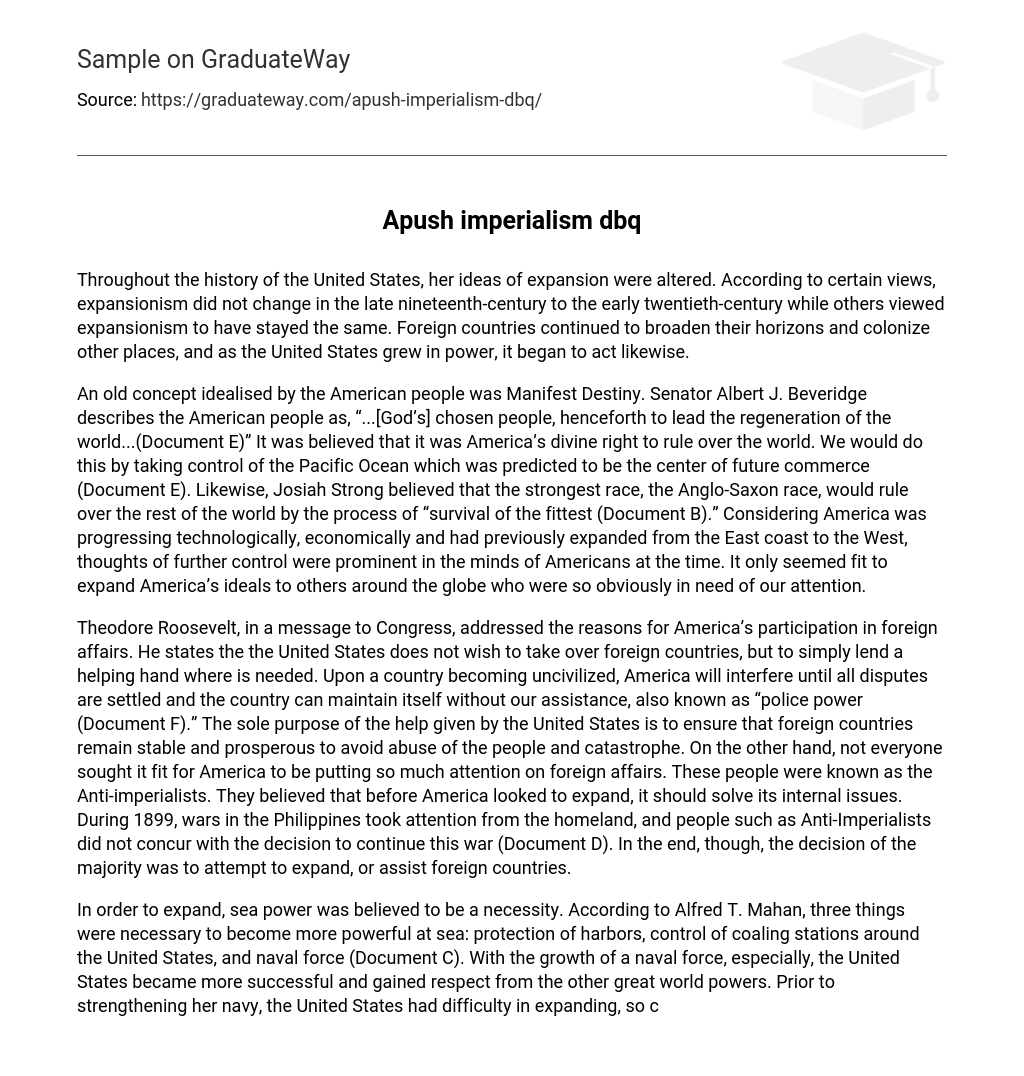The idea of expansion in American history has evolved. Some people thought that expansionism stayed the same from the late 1800s to the early 1900s, while others disagreed. Foreign nations kept exploring and forming colonies, and as the United States grew stronger, it did the same.
The concept of Manifest Destiny, an old American ideal, revered the belief that the American people were specially chosen by God to lead the world’s rejuvenation. Senator Albert J. Beveridge shared this conviction and proclaimed that Americans were divinely selected to guide the world’s rebirth. The notion was that America possessed a sacred entitlement to govern over all nations, which would be accomplished through dominance in the Pacific Ocean—a region perceived as the future hub of trade. Additionally, Josiah Strong asserted that the mighty Anglo-Saxon race would prevail globally due to their superior traits under “survival of the fittest.” As America advanced technologically and economically, having already expanded from coast to coast, aspirations for further control over other countries grew among its citizens. Consequently, it appeared appropriate to extend America’s ideals to other nations in need of assistance.
Theodore Roosevelt, in a message to Congress, recognized America’s engagement in international matters. He stressed that America’s intention is not to conquer other nations but rather extend help when necessary. If a country becomes uncivilized, America will intervene until all conflicts are resolved and the nation can stand independently. This is known as “police power” (Document F). The United States offers assistance to foreign countries to ensure stability and prosperity and prevent mistreatment of their citizens and disasters. However, there were dissenting voices regarding America’s emphasis on foreign affairs. The Anti-imperialists believed that addressing internal issues should precede expansionism. The Philippines war in 1899 diverted attention from domestic matters, leading the Anti-imperialists to oppose its continuation (Document D). Nonetheless, the majority opted for either expansion or providing aid to foreign countries.
According to Alfred T. Mahan, the expansion of sea power was crucial, as he believed that there were three essential elements for increasing naval strength: protecting harbors, controlling coaling stations around the United States, and having a strong navy (Document C). This strengthening of the navy allowed the United States to gain respect from other major world powers and become more successful. Previously, challenges in expanding had allowed countries like Britain, Germany, and Russia to divide the globe among themselves (Document A). However, after improving its naval capabilities, not only did the United States compete with foreign countries but also influenced their foreign policies.
The political cartoon titled “American Diplomacy” demonstrates how the United States exerted control over other nations’ influence on China. Despite being a young country, centuries-old nations recognized America’s rules and regulations before its colonization of the Americas. The growth of American power enabled overseas expansion as well as global promotion of values and assistance provided to struggling nations.
Over the years, the United States has both adhered to and deviated from previous expansionism. By persisting in its pursuit of Manifest Destiny, the nation perpetuated aspects of prior expansionism. However, new expansionism emerged through increased reliance on the navy and foreign policies. All these aforementioned principles contributed to America’s transformation into the immensely successful superpower it is today.





